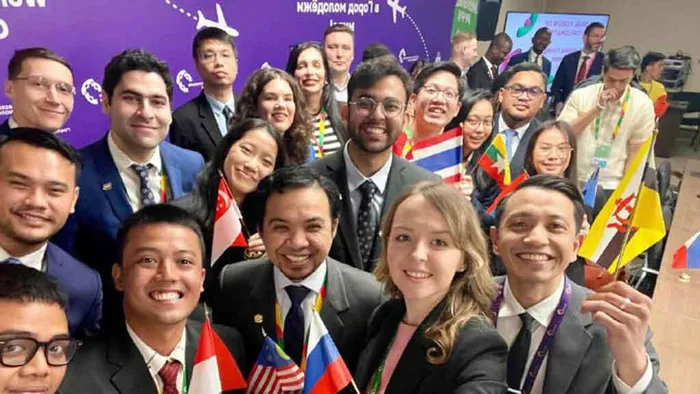Empowering South Africa's youth: A call for change in diplomacy

South Africa needs to empower young voices in diplomacy for a more inclusive and effective foreign policy.
Image: File
In the corridors of international diplomacy, South Africa has long been known for its principled stance, historical legacy, and moral authority. From the era of Mandela to its leadership in the African Union and BRICS, the country has earned its seat at many influential global tables. But today, a growing concern must be addressed: South Africa’s diplomatic voice is ageing, both in its leadership and in its thinking.
If we are serious about building a globally competitive, forward-looking, and inclusive foreign policy, then the government must stop treating diplomacy like an old age home — and start making space for young people. It is not a radical statement to say that the world is changing. Climate crises, digital transformation, global migration, artificial intelligence, youth unemployment, and rising inequality dominate international agendas.
These are not hypothetical problems of the distant future — they are current realities that affect millions of young South Africans right now. Yet the youth remain largely excluded from the diplomatic conversations and decision-making platforms that directly shape their future. There’s a common refrain used to dismiss youth participation: “The youth are the leaders of tomorrow.” That might sound inspiring, but it’s also a convenient excuse to sideline young people in the present. South African youth are not waiting for a baton to be passed to them in some distant future. They are already innovating, organizing, creating, and building — in civil society, in business, in technology, and in grassroots politics.
Why then are they still largely invisible in diplomacy?
The answer lies in outdated systems and assumptions. In South Africa, many diplomatic postings are still treated as rewards for loyalty, tenure, or political alignment. It’s not uncommon to see former politicians and senior officials appointed as ambassadors well into retirement. Experience certainly has value - but experience should not be an excuse for exclusion. A healthy diplomatic corps needs both wisdom and youthful energy. The current imbalance is holding us back. Young people are not asking for handouts or symbolic seats at the table. They are demanding a rightful role in shaping policies that impact them. And the benefits of doing so are evident. Young people bring fresh thinking, adaptability, and creative problem-solving skills. In an era where digital diplomacy, cybersecurity, and global information warfare are reshaping international relations, we need minds that understand and can navigate these spaces intuitively.
More than 60% of Africa’s population is under the age of 25. How can South Africa lead on continental issues if our diplomatic voice doesn’t reflect that demographic reality? Inclusion is not just about fairness - it’s about credibility and effectiveness. From climate justice to decolonial struggles, youth-led movements are influencing international discourse. South Africa cannot afford to be out of step with this global momentum. By sidelining its youth, it sidelines its potential to lead. To shift from rhetoric to reality, the South African government must implement practical reforms that prioritise youth engagement in foreign policy and diplomacy.
The creation of a Youth Foreign Policy Advisory Council, composed of young professionals, scholars, and activists, could serve to advise the Department of International Relations and Cooperation (DIRCO) on youth issues and global trends. South African delegations to global platforms - from the UN to the AU to BRICS - should include young delegates not for symbolic presence, but for meaningful participation. Fellowship programs, youth exchanges, and mentorship pipelines can prepare young South Africans for careers in diplomacy and international affairs. And most importantly, the criteria for diplomatic appointments should be reviewed to prioritise merit, diversity, and future-oriented thinking, not just loyalty or long service. Embassies should become more than just administrative centres.
They should be transformed into hubs for youth engagement, hosting forums, innovation events, and cultural exchanges led by and for young South Africans. Imagine a foreign mission that not only flies the flag but also exports the ideas, energy, and talents of its youth to the world. Ultimately, youth inclusion in diplomacy is about power - the power to shape narratives, negotiate interests, and influence the global agenda. It is not enough to invite young people to conferences or put them on panels. They must be part of the decision-making architecture. Diplomacy that excludes the youth is not diplomacy for the future — it’s diplomacy stuck in the past. South Africa, a country built on the ideals of justice, equality, and human dignity, cannot afford to ignore the very generation that will define its place in the world for decades to come. It’s time to move from talking about young people to talking with them. Better yet - let’s let them lead.
Related Topics: